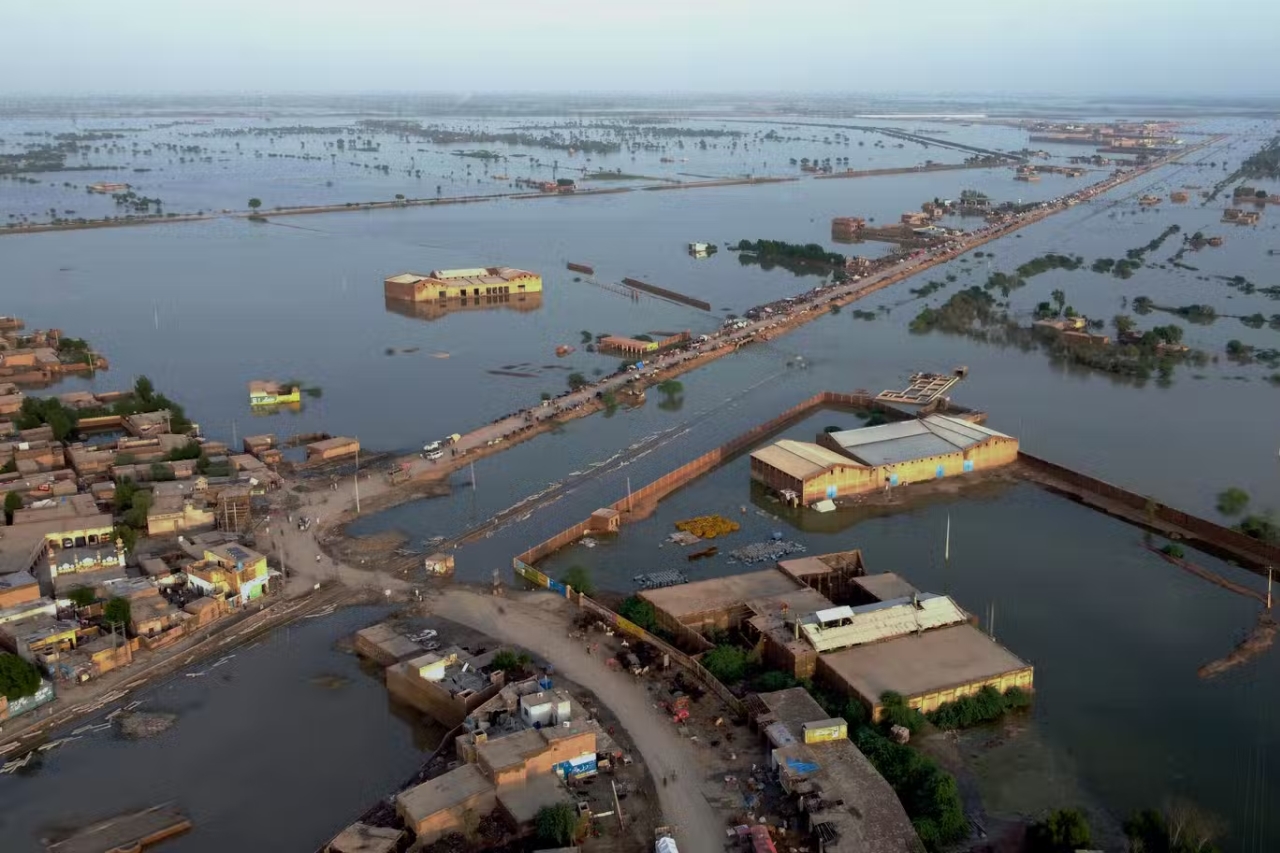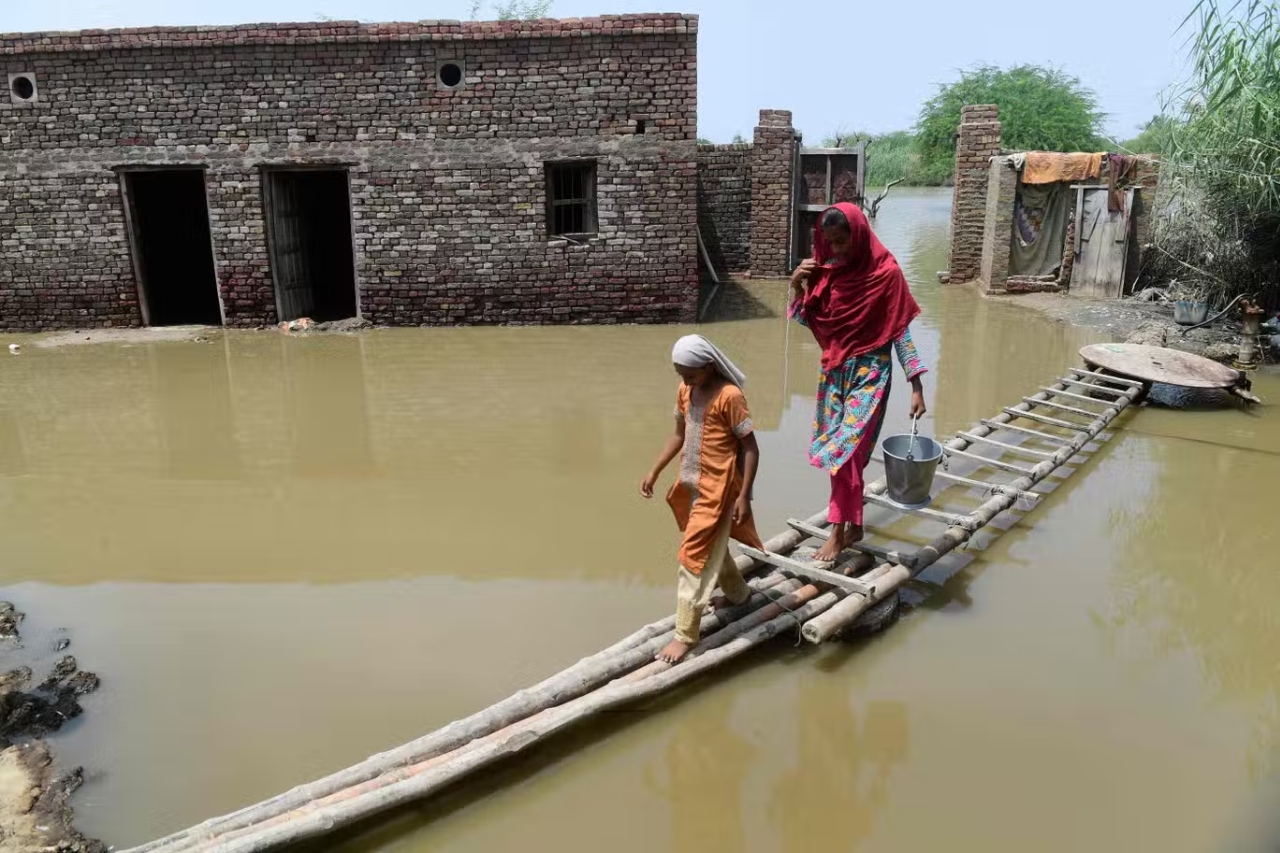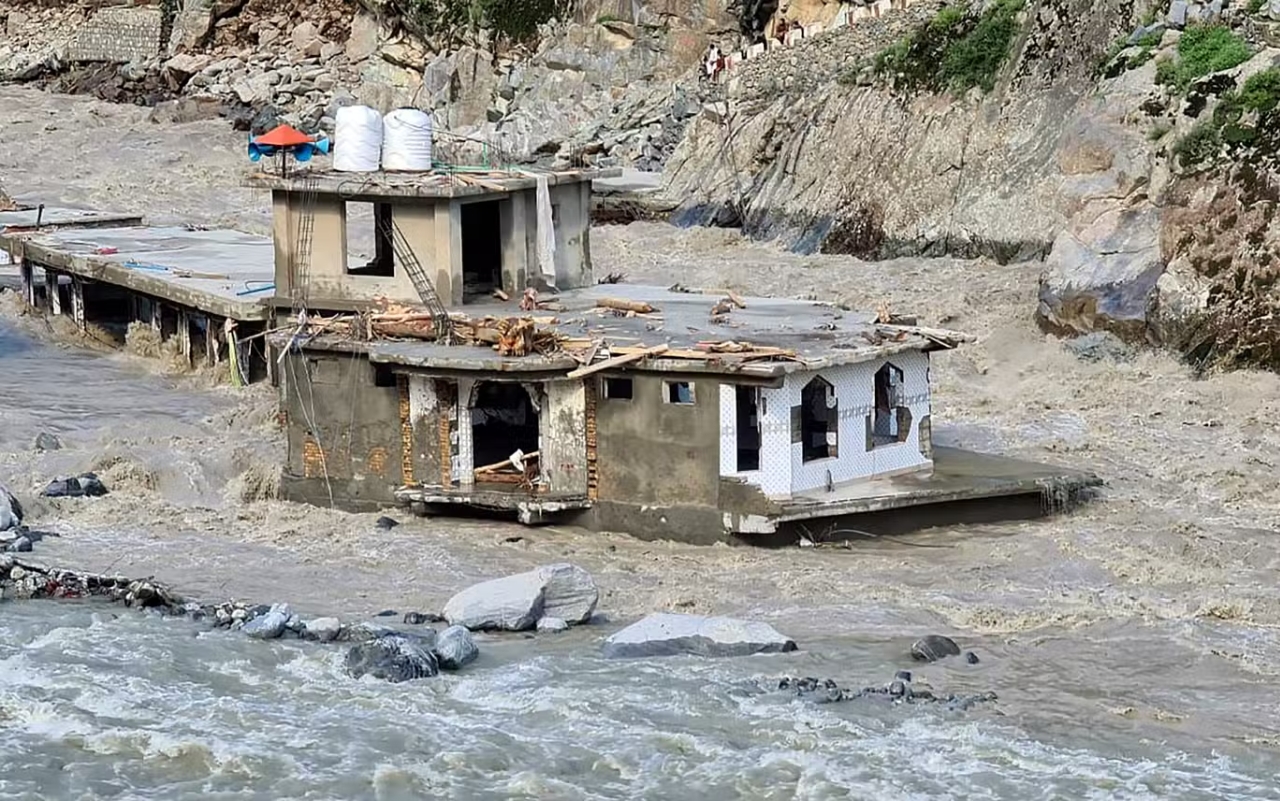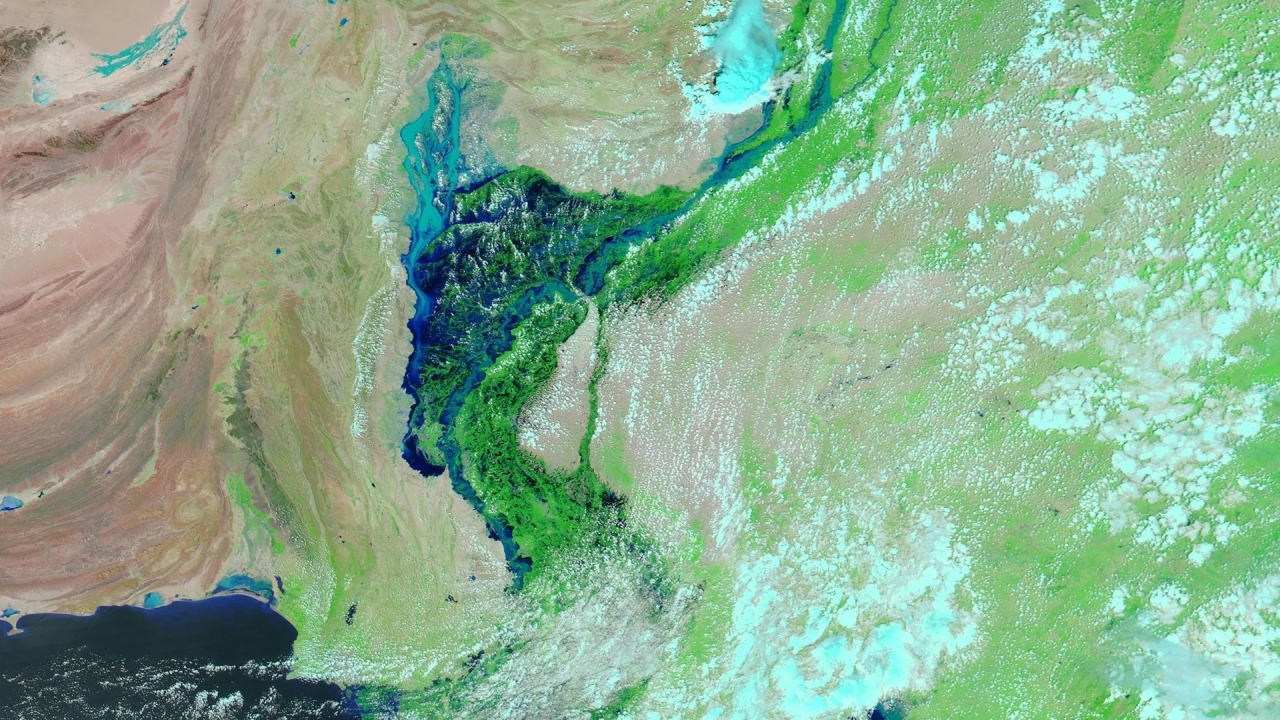UN Chief to Visit Pakistan Floods, Says It’s a “Monsoon on Steroids”
The country is drowning in historic deadly flooding, climate change is the trigger
While some parts of the world are grappling with catastrophic droughts, some regions are suffering from insufferable floods due to a monsoon that UN Secretary-General Antonio Guterres has called to be on steroids. The UN chief will visit Pakistan next week as the nation battles historic floods.
Guterres will arrive in Islamabad on September 9 for a two-day visit. He will assess the damage caused by unprecedented flash floods triggered by monsoon rains. The floods have washed away roads, crops, buildings, and bridges while killing at least 1,100 people since June and impacting over 33 million people.

Image: AP
After the floods submerged a third of the country, Guterres said that Pakistan is facing “a monsoon on steroids.” The UN chief urged the world to come to the nation’s aid as he launched a $160 million request to help the disaster-affected people.
In a video message, Mr. Guterres said that South Asia has become a “climate crisis hotspot” where people were 15 times more threatened by climate change than anywhere else in the world. He said that the UN appeal targeted to offer 5.2 million people with safe food, water, sanitation, emergency education, and health support.

Image: AFP
Pakistan generates less than 1 percent of global carbon emissions yet it is one of the top 10 most vulnerable countries to changing climatic conditions. The country’s planning minister revealed that floods have caused an estimated $10 billion of damage, putting many people in food insecurity.
Due to the devastating monsoon this year, vast swathes of rich agricultural land were damaged while food supplies declined and prices hiked. The flood situation is most severe in provinces such as Sindh and Balochistan; however, mountainous regions in Khyber Pakhtunkhwa have also been gravely affected.

Image: AP
New satellite images taken on August 28 from NASA’s MODIS satellite show the extent of these historic floods in Pakistan as a raging and overflowing Indus River has created a 100-kilometer-wide inland land in parts of Sindh Province. Much of this inundated land was flourishing agricultural land.

Image: NASA Worldview
Thousands of people have had to evacuate villages that were cut off in northern Swat Valley with bridges and roads washed away in the floods. Authorities are working relentlessly to help those trapped.
Via: Reuters


